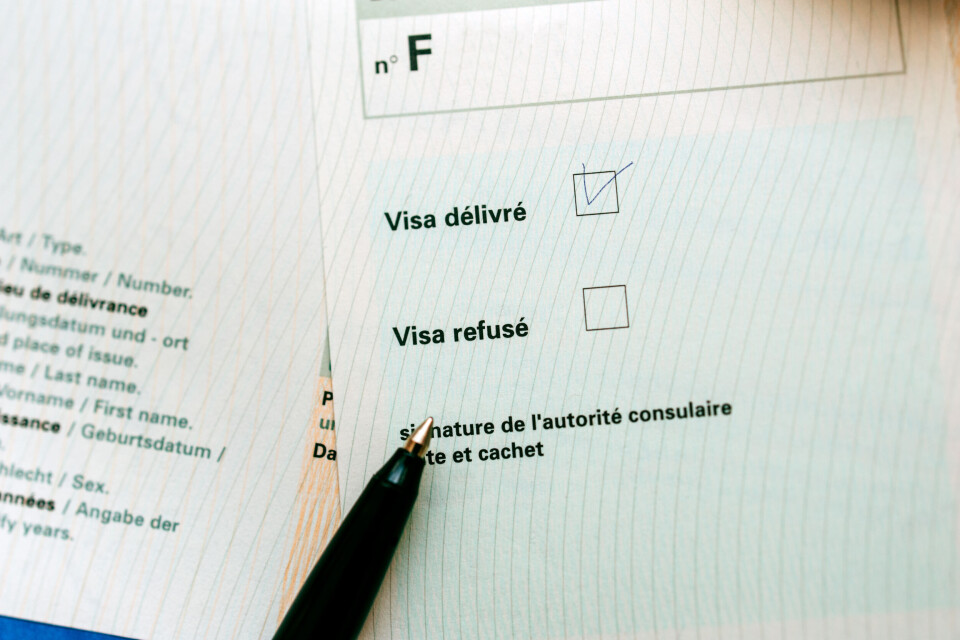-
90/180 days rule: Can visa-free days be used to enter France before start of visa?
Be wary of spending too much time in France or you may be seen as a tax resident
-
Explained: How an amicale laïque can help you get involved in France
The organisation offers a range of community events and festivals
-
French interior minister wants to toughen rules for gaining citizenship
Applicants ‘must meet a certain number of conditions’ he said
Explainer: Long-stay French visas serving as residence permits
Some visas are equivalent to a residence permit and others come with an obligation to apply for such a permit. We look at the difference

In France, the different types of long-stay visas that are issued often fall under three broader categories.
These are:
- Long-stay visa with the obligation to apply for a residence permit
- Long-stay visa equivalent to a residence permit (VLS-TS)
- Temporary long-stay visa (VLS-T)
Those with the first type must seek a titre de séjour soon after their arrival in France, while those with the latter two do not.
Read more: Explainer: what is France’s ‘talent’ visa and who can get one?
Long-stay visa equivalent to a residence permit
This is the type of visa that British people hoping to spend more than six months in France as part of an extended family visit to a second home, for example, would normally be granted.
This type of visa – called a visa de long séjour valant titre de séjour (VLS-TS) in French – enables a person to live in France for up to 12 months without having to apply for a residence permit.
However, after the first year, the person will have to obtain a titre de séjour if they wish to extend their stay in France. This must be done in the two months before your visa expires.
This type of visa can be granted to people arriving in France for different reasons, from work to study to extended private visits.
You must validate your VLS-TS within three months of arriving in France, and if you fail to do so your presence will no longer be legal.
Read more: Under what circumstances do you need to validate a French visa?
The validation process can be carried out online. You will need to provide:
- Information on your visa
- The date on which you entered France
- Your address in France
France’s immigration and integration office, the OFII, could also contact you to arrange formalities such as a medical check.
If you have any questions about this you can contact the Directorate-General for Foreign Nationals in France on 0806 001 620 or dgef-support@interieur.gouv.fr
For the first three months after your arrival in France, you may come and go without having validated your VLS-TS.
However, if you fail to validate it after these three months elapse and then leave the country, you will have to apply for a new visa in order to return.
Temporary long-stay visa
The visa de long-séjour temporaire would normally be obtained for between four and six months, allowing non-EU citizens to stay in France for longer than the 90 visa-free days that they are normally allocated.
This type of visa would be granted to British people wishing to visit France - without working there - for more than three months but less than six months.
You do not have to validate this visa while in France, or apply for a residence permit.
However, unlike the VLS-TS, you must leave France when your VLS-T expires, and cannot apply for a residence permit to extend your stay.
Long-stay visa with obligation to apply for a residence permit
Some visas do not act as a residence permit in themselves, and instead require the recipient to apply for a titre de séjour at their local prefecture, or police headquarters if in Paris.
British people visiting second homes, for example, would not be given this type of visa.
The carte de séjour application must be done within two months of your arrival in France, and replaces the need to validate your visa.
Before you apply, you should check your prefecture’s website for further information on the documents you will need to provide.
This type of visa is normally granted to people who know that they will be staying in France for more than a year.
Examples of visas with an obligation to apply for a residence permit include those issued to employees of international companies who are posted in France for more than 12 months, and to some family members of French or foreign nationals who are coming to live with them in France.
Related articles
How do you replace a lost French residency card and at what cost?
Can US and UK travellers use e-gates at French airports?
























